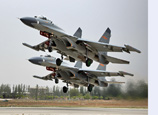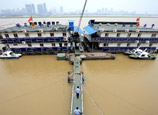
Dirty money
Each 100-kilogram bundle of clothes is sorted to suit the needs of Chinese customers.
"It costs around 860 yuan ($140) if you take a whole bundle of clothes, but we don't ensure its quality, because these bundles haven't been dealt with by us and you may find clothes of varying quality," Huang told the Global Times.
Some clothes can be sold at higher prices if they have been handled by local people. "After washing and ironing, there are clothes of high quality, like brand name jeans and wool coats. These can be sold for hundreds of yuan for one piece," Zhang said, adding that good-quality clothes are rare and they can enter boutique stores in second- and third-tier cities.
Most secondhand clothes are sold to dealers in rural areas of inland provinces, including Henan, Anhui and Jiangxi. "In less developed areas, people are more concerned about the price rather than the quality of the clothes," Zhang told the Global Times.
A Global Times reporter visited several stalls in a flea market nearby a construction site in the East 5th Ring Road of Beijing. Most of the clothes, shoes and other commodities had obvious stains, and smelled musty. Most of these clothes were sold for around 10 to 30 yuan each. The buyers were construction workers and some local citizens.
"Our clothes are safe to wear. We have washed, ironed and repaired them ourselves. You don't need to worry about their quality," a middle-aged vendor who refused to give her name, told the Global Times.
Similar distribution centers for secondhand clothes illegally transported into China have also been reported in other cities in Guangdong Province, including Dongguan.
High price for smuggling
Hazardous wastes, banned from entering China, can cause severe soil, air and water pollution, and affect public health. Statistics show that around 2 million tons of solid wastes, including junk clothes, household rubbish, and waste electronic products are transported into China from England each year.
"It is driven by economic benefit. It would take a huge amount of money to dispose of this waste in Western countries. The cost is much lower if it's transported into developing countries, including China and African countries," said Jiang Jianguo, an expert on environmental-protection from Tsinghua University.
According to Chinese law, smuggling solid wastes into China or using solid wastes as raw materials without permission warrants fines of between 10,000 and 1 million yuan. Serious violators can be sentenced to a minimum of five years in jail. Despite these laws, the lucrative market has propelled this market forward.
A PhD graduate in Henan was arrested for smuggling secondhand medical equipment into China earlier this month, the Beijing Times reported. He had been selling medical equipment discarded by foreign countries to medical institutes and private clinics in rural areas of 15 provinces and cities over the past three years. He bought medical equipment for 50,000 yuan, and sold it to middlemen for 100,000 yuan. Hospitals then bought items for 300,000 to 1 million yuan.
"Some companies and individuals might look for legal loopholes and use their right to dispose of recyclable waste as a way to cover up importing solid waste into China, which has posed difficulties for customs inspections," an official from the customs headquarters in Beijing, who asked not to be named, told the Global Times.
Chinese customs authorities have launched campaigns to crack down on the illegal transportation of solid waste in recent months.
In 2011, China's customs authorities cracked down on 1,121 cases of illegal importation of solid wastes, involving 10,400 tons of waste metal, 16,000 tons of waste plastics and 250,500 tons of other waste, Xinhua reported.

















 5 dead, 20 missing in Shandong explosive plant blast
5 dead, 20 missing in Shandong explosive plant blast


![]()
